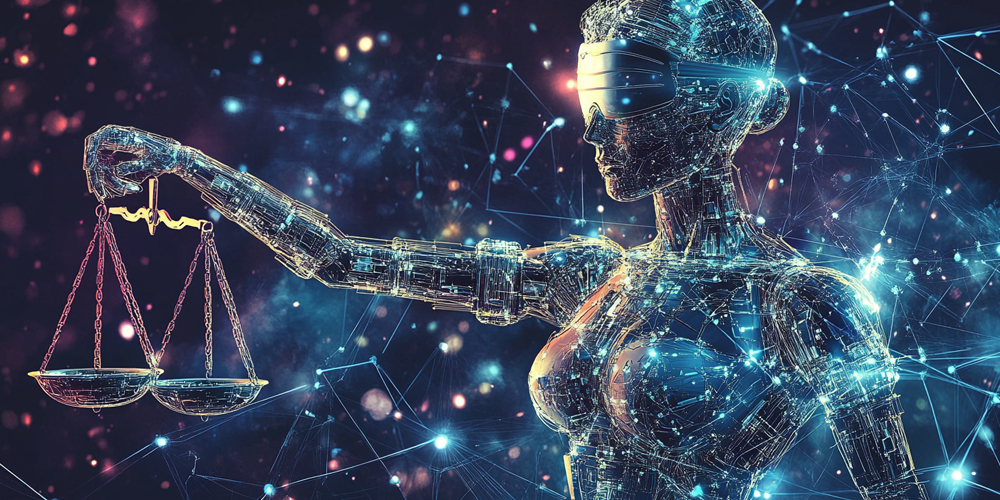In recent years, AI-powered automation has transformed various industries, reshaping how businesses operate. The integration of artificial intelligence into automation processes enhances efficiency, reduces costs, and improves decision-making. This article explores the latest trends in AI-powered automation and their impact across different sectors.
Understanding AI-Powered Automation
What is AI-Powered Automation?
AI-powered automation combines artificial intelligence with automation technologies to streamline tasks that typically require human intervention. This includes data analysis, customer interactions, and repetitive processes. By leveraging machine learning and data analytics, businesses can automate complex tasks and enhance productivity.
The Importance of AI in Automation
Integrating AI into automation brings significant advantages. First, it allows for more intelligent decision-making based on data insights. Second, it reduces the potential for human error, leading to higher quality outcomes. Finally, it frees employees to focus on higher-value tasks, promoting innovation and creativity.

Key Trends in AI-Powered Automation
1. Increased Adoption of Robotic Process Automation (RPA)
Robotic Process Automation (RPA) is gaining momentum as organizations seek to automate repetitive tasks. RPA uses software robots to handle rule-based tasks, enabling employees to concentrate on more strategic activities.
Benefits of RPA
- Cost Reduction: Automating routine tasks lowers operational costs significantly. Companies can allocate resources more efficiently, allowing for better budget management.
- Improved Accuracy: RPA minimizes human errors, enhancing data quality. This leads to more reliable outputs and can significantly reduce the time spent on corrections.
- Scalability: Organizations can easily scale RPA solutions to meet demand. As business needs change, RPA systems can be adjusted without extensive reconfiguration.
As businesses recognize these benefits, RPA adoption will continue to grow, shaping the future of operational efficiency.
2. Enhanced AI and Machine Learning Capabilities
The evolution of AI and machine learning technologies is a game-changer for automation. These technologies enable systems to learn from data, making them more efficient over time.
How AI Enhances Automation
- Predictive Analytics: AI can analyze historical data to predict future outcomes, helping organizations make informed decisions. This capability is crucial for industries such as finance and retail, where anticipating market trends can lead to significant advantages.
- Natural Language Processing (NLP): NLP enables machines to understand and respond to human language, improving customer interactions. This technology allows chatbots and virtual assistants to provide more meaningful and personalized responses.
- Computer Vision: AI-driven computer vision allows for automated inspections in manufacturing and quality control. By identifying defects or anomalies in real time, businesses can maintain high standards and reduce waste.
These advancements make automation more intelligent and effective, paving the way for smarter business processes.
3. AI in Customer Service Automation
Customer service automation is undergoing a significant transformation with AI technologies. Chatbots and virtual assistants are increasingly used to enhance customer experiences.
Advantages of AI in Customer Service
- 24/7 Availability: AI-powered systems provide support around the clock, ensuring customers receive timely assistance. This constant availability enhances customer satisfaction and loyalty.
- Personalization: AI can analyze customer data to offer personalized recommendations and solutions. By understanding individual preferences, businesses can tailor their services more effectively.
- Efficiency: Automated systems can handle multiple inquiries simultaneously, reducing wait times. This efficiency leads to quicker resolutions and a better overall customer experience.
This trend leads to improved customer satisfaction and loyalty, essential for retaining competitive advantage.
4. Automation in Supply Chain Management
AI-powered automation is revolutionizing supply chain management. Businesses leverage AI to optimize logistics, inventory management, and demand forecasting.
Key Benefits of Automation in Supply Chains
- Real-Time Tracking: AI enables real-time monitoring of inventory levels and shipment statuses. This visibility allows businesses to respond quickly to changes in demand or supply disruptions.
- Demand Forecasting: Predictive analytics helps businesses anticipate demand, reducing overstock and stockouts. By aligning inventory with actual customer needs, companies can improve cash flow and reduce waste.
- Cost Efficiency: Automated processes reduce labor costs and enhance operational efficiency. Streamlined operations lead to significant savings, making businesses more competitive.
By embracing AI in supply chains, organizations can improve agility and responsiveness, essential in today’s fast-paced market.
5. Integration of AI in Manufacturing Processes
AI-powered automation is reshaping manufacturing industries. Smart factories utilize AI to optimize production lines and enhance product quality.
Benefits of AI in Manufacturing
- Predictive Maintenance: AI systems monitor equipment health, predicting failures before they occur. This proactive approach minimizes downtime and extends the lifespan of machinery.
- Quality Control: Automated inspections powered by AI ensure products meet quality standards. By using machine learning algorithms, manufacturers can detect defects earlier and more accurately.
- Resource Optimization: AI helps optimize resource allocation, reducing waste and costs. By analyzing production data, businesses can fine-tune their processes for maximum efficiency.
These advancements drive operational excellence in manufacturing, making it more sustainable and efficient.
Challenges of AI-Powered Automation
1. Data Security and Privacy Concerns
As businesses adopt AI-powered automation, data security becomes a critical concern. Organizations must ensure that sensitive information is protected from cyber threats. Implementing robust cybersecurity measures is essential for safeguarding data integrity and maintaining customer trust.
2. Resistance to Change
Implementing automation technologies can face resistance from employees. Many may fear job displacement or struggle to adapt to new systems. Effective change management strategies are crucial to address these concerns and facilitate smoother transitions.
3. Skill Gaps
To effectively implement AI-powered automation, organizations need skilled professionals. The shortage of talent in AI and data analytics can hinder progress. Investing in employee training and development is essential to bridge these skill gaps.
Best Practices for Implementing AI-Powered Automation
1. Define Clear Objectives
Before implementing automation, businesses should define clear objectives. Understanding the goals helps in selecting the right tools and strategies. Clear objectives also provide a framework for measuring success.
2. Invest in Training
Providing training for employees is essential. Ensuring that staff understands new technologies promotes smoother transitions and acceptance. Ongoing training programs can help keep skills up to date.
3. Start Small and Scale
Organizations should start with small automation projects. This approach allows for testing and refinement before scaling up. Pilot projects can provide valuable insights and help mitigate risks.
4. Monitor and Measure Performance
Continuous monitoring and measurement of automation outcomes are vital. This helps in identifying areas for improvement and ensuring objectives are met. Regular assessments also foster a culture of continuous improvement.

Future Outlook of AI-Powered Automation
The future of AI-powered automation looks promising. As technology continues to evolve, businesses will increasingly rely on AI to drive efficiency and innovation. Trends such as greater integration of AI with IoT devices and advancements in natural language processing will further enhance automation capabilities.
The Role of IoT in AI Automation
The Internet of Things (IoT) plays a crucial role in expanding AI-powered automation. Connected devices generate vast amounts of data, which AI can analyze to optimize processes. This synergy enables smarter decision-making and enhances operational efficiency.
Ethical Considerations in AI Automation
As AI-powered automation becomes more prevalent, ethical considerations gain importance. Organizations must address issues such as bias in algorithms and the impact of automation on employment. Establishing ethical guidelines is crucial for responsible AI deployment.
Organizations that embrace these trends will position themselves for success in an increasingly competitive landscape. By focusing on resilience, efficiency, and customer satisfaction, businesses can leverage AI-powered automation to achieve sustainable growth.
Conclusion
AI-powered automation is revolutionizing industries by enhancing efficiency, reducing costs, and improving decision-making. As organizations adopt trends such as RPA, AI in customer service, and supply chain management, they can unlock significant benefits.
While challenges exist, implementing best practices can lead to successful automation projects. By investing in AI technologies, training, and clear objectives, businesses can thrive in the age of automation.
In conclusion, the integration of AI into automation represents a significant shift in how organizations operate. Embracing these changes will be essential for achieving long-term success and maintaining a competitive edge in the market. As businesses navigate this evolving landscape, those who harness the power of AI will be best positioned to innovate and grow.





